Q & A With Researcher Liz Fisher About Stroke Research & The American Heart Association Fellowship
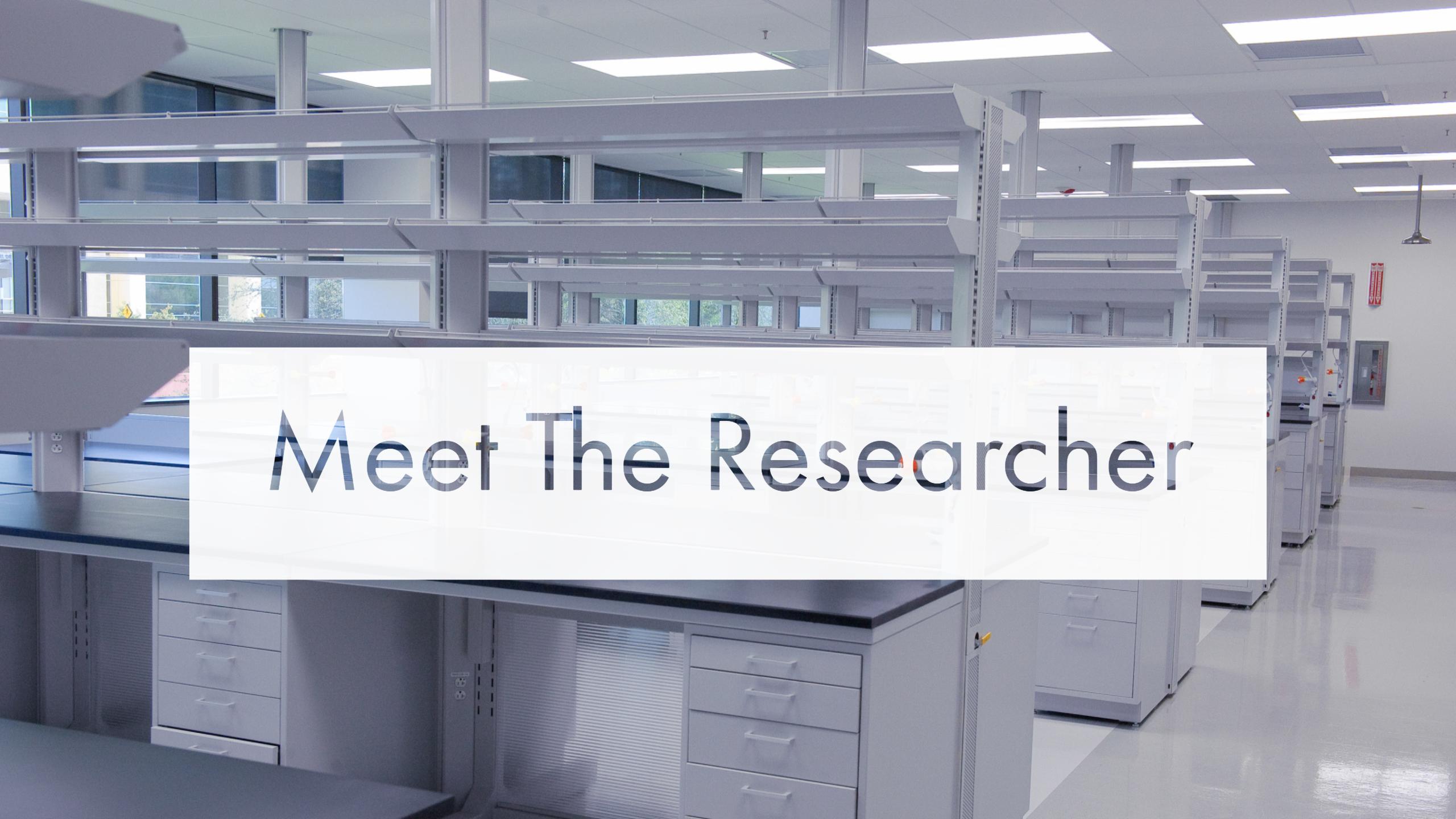
Liz Fisher is a graduate student in the IBMS- Cell biology, genetics and molecular medicine (CGM) track/discipline and is mentored by Dr. James Lechleiter.
What are researching and why are you passionate about this?
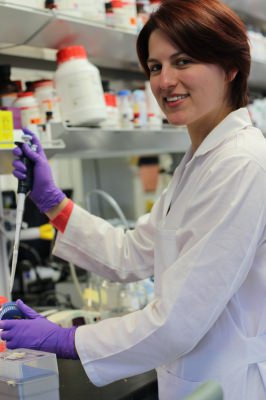 As a part of the Lechleiter lab, I study how astrocytes help protect the brain after a stroke. We’ve been using a drug which targets the metabotropic purinergic receptor P2Y1 (P2Y1R), which we know reduces lesion sizes in mice after a stroke.
As a part of the Lechleiter lab, I study how astrocytes help protect the brain after a stroke. We’ve been using a drug which targets the metabotropic purinergic receptor P2Y1 (P2Y1R), which we know reduces lesion sizes in mice after a stroke.
My specific project is examining the mechanism behind how this drug works, and whether it alters or enhances glutamate metabolism in astrocytes.
This project is important because stroke is currently the primary cause of long term disability in the United States, and the treatments we have for stroke are not exceptionally useful and only help a small fraction of patients.
We potentially have a drug that could extend the treatment window from the current three hours to 24 hours, which would increase the percentage of patients amenable to treatment.
Identifying the mechanism of action behind how the drug works is an important step in the drug development process. I’ve worked on glia before, and I think astrocytes are particularly cool.
They were very understudied originally due to their lack of action potentials and membrane excitability. But more and more we’re finding they play critical roles in everyday processes, and can even send out transmitters.
I also love that I get to use in vivo live imaging to examine astrocytes and glutamate metabolism. It’s an intensive technique, but it generates beautiful images and movies of the intact brain.
I’m just getting started on some of these experiments, but I’m really looking forward to collecting that data.
In your words, what
is the American Heart Association fellowship?
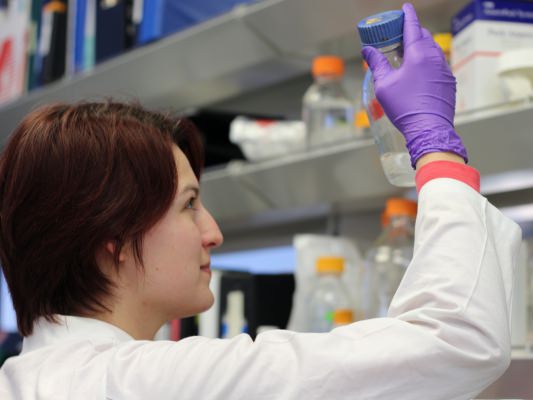
The American Heart Association predoctoral fellowship is a training grant which supports students on the path to a research career.
Training grants acknowledge that you don’t know everything you need to know yet, and provide support for you to learn something new.
It’s also saying that you as an individual show interest and promise in being an independent investigator, so here are funds to help support this part of your training to become that.
Why did you apply?
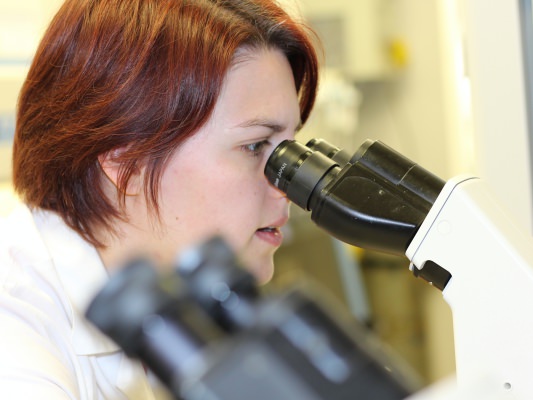
I applied, in part, because grant writing is an important and necessary skill in becoming an academic researcher.
In today’s funding climate, professors write grants almost constantly. Navigating the grant application process is not just about writing your science.
While that’s a crucial part, there are multiple supplementary materials that are just as important, and they take a lot of time to make cohesive.
These documents help the reviewer get a sense of big picture of the research environment you work in and if the work you propose is possible, and what benefits you would get from having the grant.
Putting together the application yourself demystifies the process, and gives you experience in a very important part of your career.
How will this benefit you as a graduate student?
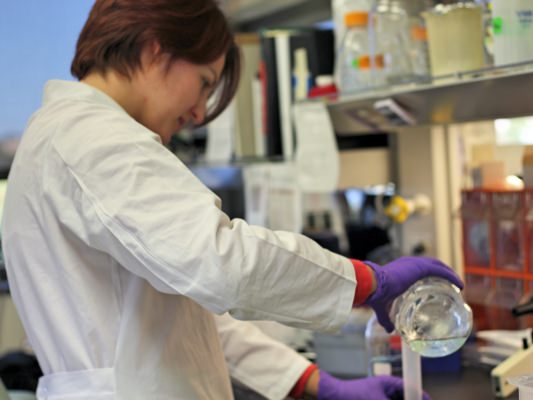
This training grant will be very beneficial for me in my career development.
In applying for a post-doctoral position, it shows a potential mentor that you have the ability to obtain independent funding, which boosts your chances in getting a position in your dream lab.
It’s also a little endorsement from the reviewers of my proposal- established scientists think you have potential, which honestly is a boost to my self confidence.
Being an advanced graduate student that has hit quite a few roadblocks early on to say the least, it’s very reaffirming to have that support.
What are your future career goals?
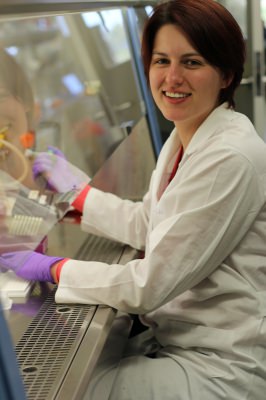 My future career goals are still a little up in the air.
My future career goals are still a little up in the air.
I’m passionate about research and discovery, those rare moments when everything comes together or you finally get an experiment to work drive me to get more work done.
But I’m also passionate about attracting and maintaining women in science, and also science literacy and community engagement with science.
I guess like Dr. Blake likes to say,”the job you want doesn’t exist yet.” Maybe I’ll have to figure out how to work in a bit of all three.
 This article was written by Charlotte Anthony, marketing specialist at the Graduate School of Biomedical Sciences at UT Health San Antonio. This article is part of the “Meet The Researcher” series which showcases researchers at the Graduate School of Biomedical Sciences at University of Texas Health Science Center San Antonio.
This article was written by Charlotte Anthony, marketing specialist at the Graduate School of Biomedical Sciences at UT Health San Antonio. This article is part of the “Meet The Researcher” series which showcases researchers at the Graduate School of Biomedical Sciences at University of Texas Health Science Center San Antonio.
